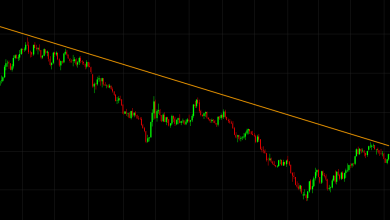How to choose a Forex trading strategy in Hong Kong

If you’re considering investing in the Forex market, choosing a trading strategy is essential. With so many options available, knowing which one is right for you can be tricky. We’ll look at some of the most popular strategies used in Hong Kong and outline the pros and cons of each.
What are the different types of Forex trading strategies?
The most popular Forex trading strategies in Hong Kong are scalping, day trading, swing trading, and position trading.
- Scalping: This is a short-term strategy where you take advantage of small price movements. Scalpers usually hold their positions for a few minutes or seconds and make lots of trades throughout the day.
- Day trading: This is a strategy where you open and closes your positions within the same day. Day traders usually don’t hold their positions overnight, as they want to avoid the risk of gap openings.
- Swing trading: This is a strategy where you hold your positions for a few days or weeks to take advantage of more significant price movements. Swing traders often use technical analysis to help them make decisions.
How do you decide which Forex trading strategy is right for you and your investment goals?
The best way to decide which Forex trading strategy is right for you is to consider your investment goals. Are you looking to make a quick profit, or are you more interested in long-term gains?
Your investment timeframe will also play a role in decision-making. If you have a shorter investment horizon, scalping or day trading might be more suitable. However, if you’re looking to hold your positions for more extended periods, swing trading or position trading might be better options.
Things to consider when choosing a Forex trading strategy in Hong Kong
Once you’ve considered your investment goals and timeframe, you should consider a few other things when choosing a Forex trading strategy.
- Risk tolerance: Different strategies come with different levels of risk. For example, scalping generally has a lower risk than swing trading, as you only hold your positions for a short period. But this also means that scalping strategies tend to have lower potential returns.
- Trading style: Your trading style will also play a role in decision-making. If you’re the type of trader who likes to be in control and make quick decisions, then day trading might be more suitable. However, swing trading or position trading could be better options if you’re more comfortable taking a hands-off approach.
- Market conditions: The Forex market is constantly changing, and different strategies work best in different market conditions. For example, scalping might be more difficult during periods of low volatility, while swing trading can be more challenging in a ranging market. You should also note that when you’re in Hong Kong, you are essentially on the other side of the world from some of the other major trading centres such as New York and London, and you should account for this time difference if you would like to trade during the hours with the highest liquidity.
- Your trading preferences: Finally, choosing a strategy that suits your personality is essential. If you’re the sort of person who enjoys the excitement of fast-paced trading, then scalping or day trading might be more your style. However, if you prefer a slower and steadier approach, then swing trading or position.
Are there any risks associated with using a Forex trading strategy?
All investment strategies come with some level of risk, and Forex trading is no different. The key is to minimise your risks by doing your research and choosing a strategy that suits your investment goals and timeframe.
Some of the risks associated with Forex trading include:
- Volatility: The Forex market is notoriously volatile, making it difficult to generate consistent profits.
- Leverage: Many Forex traders use leverage to magnify your profits and losses. It’s important to use leverage responsibly and not to risk more than you can afford to lose.
- Market conditions: As mentioned earlier, the Forex market is constantly changing, making it difficult to generate consistent profits.
- Counterparty risk: When trading forex, you contract with another party. There’s always the risk that they may not hold up their end of the deal, which could lead to losses on your part.
Conclusion
Choosing the right Forex trading strategy is essential to your success as a trader. Be sure to consider your investment goals, timeframe, and risk tolerance when making your decision. And don’t forget to partner with a reputable and trustworthy Forex broker, like Saxo Hong Kong.





